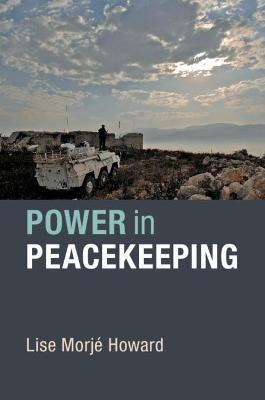Power in Peacekeeping

Power in Peacekeeping
United Nations peacekeeping has proven remarkably effective at reducing the death and destruction of civil wars. But how peacekeepers achieve their ends remains under-explored. This book presents a typological theory of how peacekeepers exercise power. If power is the ability of A to get B to behave differently, peacekeepers convince the peacekept to stop fighting in three basic ways: they persuade verbally, induce financially, and coerce through deterrence, surveillance and arrest. Based on more than two decades of study, interviews with peacekeepers, unpublished records on Namibia, and ethnographic observation of peacekeepers in Lebanon, DR Congo, and the Central African Republic, this book explains how peacekeepers achieve their goals, and differentiates peacekeeping from its less effective cousin, counterinsurgency. It recommends a new international division of labor, whereby actual military forces hone their effective use of compulsion, while UN peacekeepers build on their strengths of persuasion, inducement, and coercion short of offensive force.
PRP: 324.98 Lei
Acesta este Prețul Recomandat de Producător. Prețul de vânzare al produsului este afișat mai jos.
292.48Lei
292.48Lei
324.98 LeiLivrare in 2-4 saptamani
Descrierea produsului
United Nations peacekeeping has proven remarkably effective at reducing the death and destruction of civil wars. But how peacekeepers achieve their ends remains under-explored. This book presents a typological theory of how peacekeepers exercise power. If power is the ability of A to get B to behave differently, peacekeepers convince the peacekept to stop fighting in three basic ways: they persuade verbally, induce financially, and coerce through deterrence, surveillance and arrest. Based on more than two decades of study, interviews with peacekeepers, unpublished records on Namibia, and ethnographic observation of peacekeepers in Lebanon, DR Congo, and the Central African Republic, this book explains how peacekeepers achieve their goals, and differentiates peacekeeping from its less effective cousin, counterinsurgency. It recommends a new international division of labor, whereby actual military forces hone their effective use of compulsion, while UN peacekeepers build on their strengths of persuasion, inducement, and coercion short of offensive force.
Detaliile produsului










